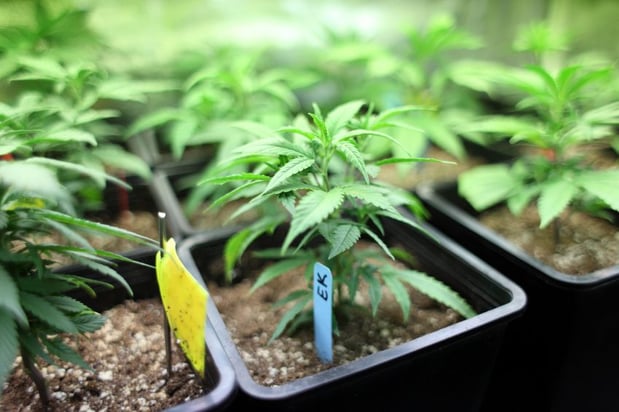The decriminalization and legalization of marijuana in more and more states remove one of the major reasons many choose not to smoke marijuana. However, even if legal, marijuana continues to be a problem for those struggling with addiction to other mind-altering substances. Here's why living sober means living without marijuana and how you can do it.
Legal or not, marijuana is still marijuana.
Employers, social workers and probation officers can still test for marijuana and make decisions about how well one is doing based upon marijuana use. The federal government continues to classify marijuana as illegal. While there are debates about the research, the majority of findings points to marijuana negatively impacting memory, increasing mental illness in those predisposed to such conditions and decreasing productivity. Non-organic marijuana is also sometimes sprayed with toxic insecticides and most organic marijuana is not regulated. Regardless of its legal status, marijuana is still not helpful in moving a person towards their goals and is still dangerous to ingest.
Mind-altering activities take away from productive activities.
To be successful in recovery, one needs to embrace productive activities such as volunteer work, sponsoring others, pursuing career goals, spending time with family and the like. Productive activities reduce any available time for addictive behaviors. It is unlikely one would spend quality time with their children or volunteer at a soup kitchen while high on marijuana. In the same way, productive activities also increase the likelihood of being surrounded by other sober-minded people. Marijuana use simply takes money, energy and time away from participating in more helpful activities.
Mind-altering activities interfere with the process of recovery.
In recovery, a person is learning how to cope with the realities of life without the assistance of substances that can either help erase or sidestep any real issues. By using marijuana, he or she is once again coping with life by avoiding it. The common argument against this point is that some people use marijuana just for fun, not for stress relief. In this case, one could engage in a number of different activities for fun. A healthy person should have many interests—why not choose one that doesn’t have the potential to harm?
Engaging in marijuana use may also trigger the brain to desire the high that comes from other substances. Once the brain is accustomed to getting high, any type of high can trigger cravings. This opens up a very dangerous opportunity of relapsing.
Also notice that the concept of "marijuana maintenance," while common among those in recovery, is not a recommended treatment by professionals. If it was, addiction professionals in areas where marijuana is legal would have very quickly begun marijuana maintenance programs. In addition, marijuana would replace methadone for opioid abuse and clinics would be packed with alcoholics making the transition. Using marijuana as a substitute for a "stronger" drug simply does not work.
Choosing to be completely sober.
When one makes the decision to be drug-free including marijuana-free, it requires some effort to execute. Make certain that those who are providing accountability are aware of your desire to be free from all drugs, including marijuana. Sponsors, substance abuse counselors and spouses all need to be aware of your decision so that they are in the proper position to provide accountability. Friends also need to be aware of your decision. True friends will not tempt you to do something that you’ve committed not to do but if they do not know about your commitment, they can become a stumbling block without even knowing.
When creating a relapse prevention plan, address marijuana use. As you list the people and places you need to avoid, include those that may provide marijuana. Be sure to share your relapse prevention plan with those around you.
Increase your understanding of the impact of marijuana and the reality of psychological addiction to marijuana. Sitting in an open Marijuana Anonymous meeting is one way to do that. As you hear the stories of those experiencing addiction to marijuana, it can motivate you to follow through with your own commitment.
Marijuana use is a bad idea for those in substance abuse recovery, even if it is legally allowed. There are consequences that go beyond incarceration and fines and they are even more greatly multiplied when the user has a past in addiction.








